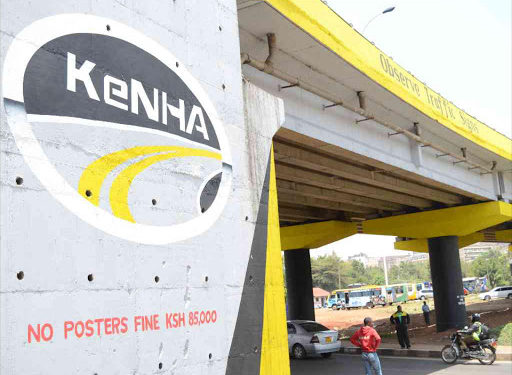The Kenya National Highways Authority (KeNHA) is advocating for stringent regulations to ensure the responsible utilization of highways throughout the nation.
Under the Kenya Roads (Kenya National Highways Authority) Regulations, motorists could face fines reaching up to KES1.9 million for causing damage to various road infrastructures erected on highways.
Specifically, motorists found responsible for damaging beams and decks of concrete bridges may be fined between KES 540,000 to KES 1.9 million, depending on the extent of the damage incurred.
According to the regulations, repairs for damages such as those to abutments, piers, beams, and decks of reinforced concrete bridges must be executed at a rate of KES 1,960,000 per cubic meter of reinforced non-cementitious, epoxy shrinkage-compensated grout material, or any other material approved by the Director-General after testing in a designated laboratory.
Similarly, damages causing repairable cracks ranging from 0.25 millimeters to less than 1 millimeter on reinforced concrete structures will require repairs based on a rate of KES 540,000 per cubic meter of grout or other approved materials.
Motorists found responsible for damaging the steel components of a bridge could face a fine of KES 250,000 per ton of fabricated mild steel, while damage to crash barriers may attract a fine of KES 15,000 per meter.
Additionally, the regulations propose replacement costs for various culverts, with Armco culverts set at KES 50,000 per meter for a 1.5-meter diameter and KES 100,000 per meter for a 2-meter diameter, and concrete culverts priced at KES 16,500 and KES 18,000 for diameters of 600 millimeters and 900 millimeters, respectively.
In terms of transportation of abnormal loads, the regulations stipulate that individuals must obtain a permit and, if necessary, police escorts and utilize warning lights during transportation. Any damages to road infrastructure during such transport may incur a fine of KES 400,000 in addition to the cost of repair.
Furthermore, the regulations address overloading, indicating that drivers of vehicles with a gross vehicle weight of 3,500 kilograms and above who bypass weighbridge stations, regardless of overloading, may face a fine of KES 400,000 or imprisonment for two years, or both.
Similarly, attempting to evade detection of overloading by concealing or using different number plates may result in a fine of KES 300,000 or imprisonment for one year.
These proposed regulations underscore KeNHA’s commitment to ensuring highway safety, accountability, and prudent usage among motorists across Kenya.
















